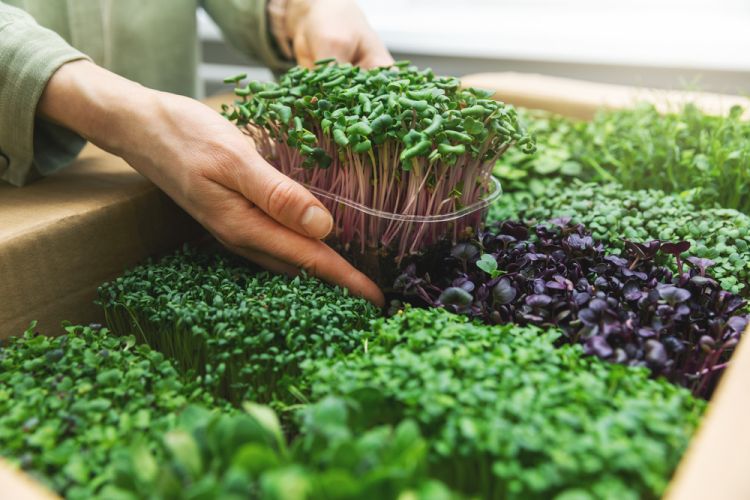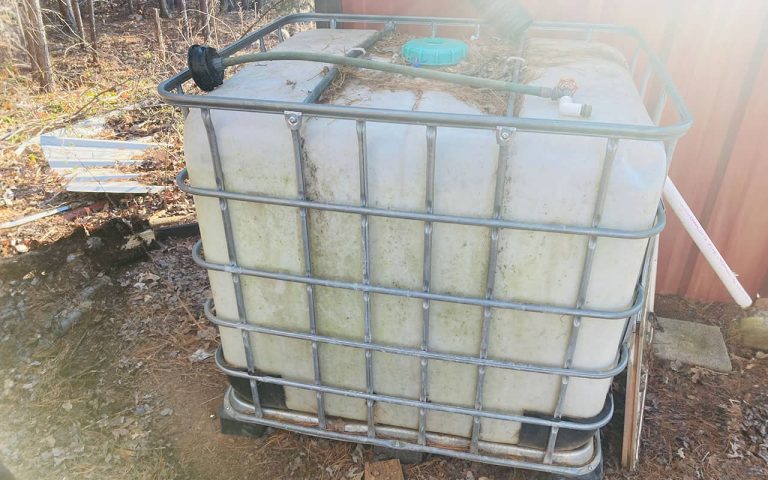When you first start growing your own food, the excitement is real. So much so, that it can be hard to wait for your first harvest! But it’s easy to start eating from your own backyard quickly, if you sow the right crops. Here are our favourite 6 crops you can harvest in under 30 days.
Microgreens
These tiny little greens are the absolute fastest crop you can grow, because you’re harvesting at the seedling stage. The word ‘microgreens’ simply refers to the small, young tender leaves of vegetables; it is not a specific plant. They might include (but are not limited to) rocket, basil, kale, mustard greens, kohlrabi, silver beet watercress, and even sunflowers. Microgreens are highly nutritious & easy to use, as they can be included in any salad or sandwich or added to a soup during the final cooking stage.
To grow your own microgreens at home, sow any standard vegetable seed thickly in planter troughs or seedling trays. You need to sow more & more densely than usual, as the idea is that the seedlings will grow up & form a thick mat which can be harvested easily. Microgreens can be succession sown as often as you like for a constant supply-we recommend sowing a new tray full of seed every 2-3 weeks to maintain a constant supply.

Peas & Snow Peas
While technically still a microgreen, pea seedlings can be harvested and used just like other microgreens. Even though they are much too young to be fruiting, ‘pea shoots’, as they are known, taste just like peas. They can be eaten raw or cooked, and have the usual tender texture of any young plant. Pea shoots can be harvested within about 2-3 weeks.

Baby Lettuce
Loose-leaf or open-hearted lettuces are easy to harvest within a month. Once sown, the seed should germinate in around a week, and from there the leaves will grow quickly. You can start harvesting lettuce once it has 3-4 sets of true leaves. When you harvest, make sure that some leaves remain on the plant so it can keep growing. Lettuce can also be grown as a microgreen. In this case, change the spacing from the usual 4-6 inches apart and sow more seed very thickly.

Root Crops
It may surprise you to learn that the tops of all root crops are edible. Carrots, radishes, turnips, parsnips & kohlrabi all have edible green leaves. Beetroot grows exceptionally tasty greens which can be eaten raw or cooked; in fact, beetroot was historically grown only for its greens. Turnip leaves are excellent when sauteed and added in with roast vegetables. Most of these crops germinate & grow fast enough to harvest tender greens from within 30 days- just make sure you get to them before the bulbs begin to form.

Radishes
Radishes are ideal for beginner food gardeners, as they’re easy to grow and give a quick harvest. Consistency of watering is important, but other than that, it’s hard to go wrong with this tasty, spicy crop. Radishes are probably the quickest root crop you can grow, and their small bulb size makes for quick harvesting. The seed germinates within 4-5 days, and radishes can picked once the bulbs are slightly thicker than your thumb.

Spring Onions
Spring onions and shallots can be harvested when immature and used in cooking as you would a mature spring onion. Like the other crops mentioned above, spring onions can be harvested at the seedling stage and will taste the same as the mature product. The seed will germinate in around one week, and as shown above, will be big enough to eat within 4 weeks.
Spring onions will grow from supermarket offcuts, too. All you need to do is cut off about an inch from the base, making sure it still has some roots in place. Plant it in some soil, and after a couple of weeks it will send up shoots that you can harvest.


















